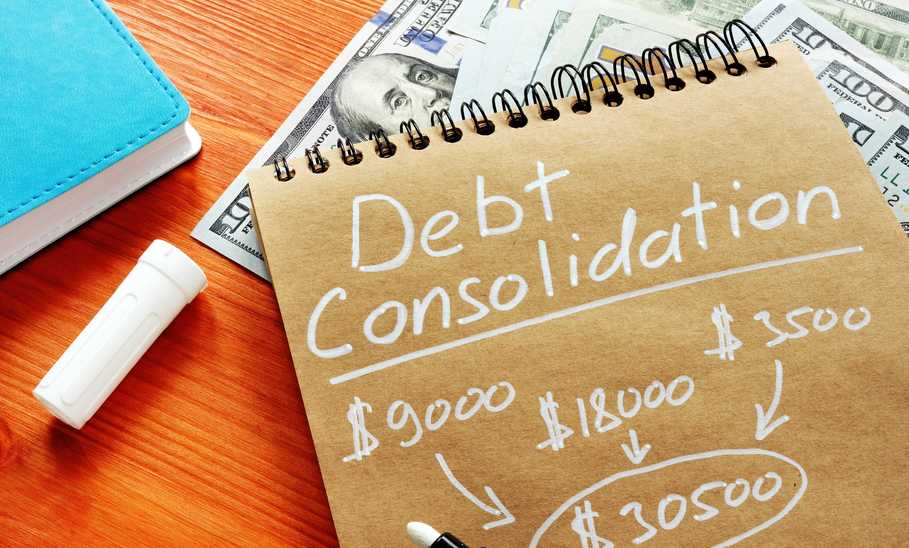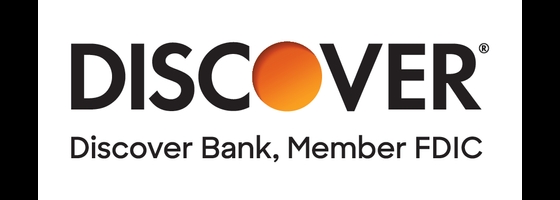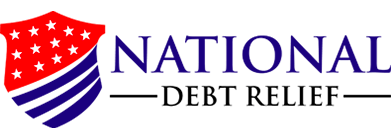- Extremely low maximum APR
- Discounted rate when enrolling in autopay
- No origination fees
10 Best Debt Consolidation Loans of November 2024

Our evaluations and opinions are not influenced by our advertising relationships, but we may earn a commission from our partners’ links. This content is created by TIME Stamped, under TIME’s direction and produced in accordance with TIME’s editorial guidelines and overseen by TIME’s editorial staff. Learn more about it.
A debt consolidation loan can be the difference between a good credit score and bankruptcy. It can be the difference between many thousands of dollars flushed down the drain and a healthy bank account balance. It can be the difference between sleepless nights and stress-free REM cycles.
Living with debt is hard. And if you are at the point where every spare penny is needed to meet monthly minimum payments on multiple high-interest loans—namely, credit cards—then it may be time to explore a debt consolidation loan.
Here are our top debt consolidation loan offers for every situation.
| Lender | Best for | APR | Loan amount | Term | Min. credit score |
|---|---|---|---|---|---|
PenFed | Low APR | 8.99% to 17.99% | Up to $50,000 | Up to 60 months | 580 |
Discover | Widely available low APR | 7.99% to 24.99% | $2,500 to $40,000 | 36 to 84 months | 660 |
Upgrade | Best overall | 9.99% to 35.99% | $1,000 to $50,000 | 24 to 84 months | 580 |
Best Egg | A secured loan | 7.99% to 35.99% | $2,000 to $50,000 | 36 to 60 months | 640 |
LightStream | Low fees | 6.94%—25.29% | $5,000 to $100,000 | 24 to 240 months | Good |
Avant | Bad credit | 9.95% to 35.99% | $2,000 to $35,000 | 24 to 60 months | 600 |
Happy Money | Customer-friendly terms | 8.95% and 17.48% | $5,000 to $40,000 | 24 to 60 months | 640 |
LendingClub | Using a co-signer | 6.34% to 35.89% | $1,000 to $40,000 | 36 or 84 months | 600 |
Upstart | Thin credit history | 7.4% to 35.99% | $1,000 to $50,000 | 36, 60 or 84 months | 300 |
National Debt Relief | Free consultation with a debt specialist | 5.99% to 35.99% | $35,00 to $40,000 | 24 to 60 months | N/A |
PenFed presents almost shockingly low interest rates for a debt consolidation loan. You’ll pay between 8.99% and 17.99%, depending on your creditworthiness. That’s literally half the maximum APR offered by many competitors. Plus, you won’t pay origination fees.
There is a catch, albeit a small one: You’ll need a previous relationship with PenFed to qualify for a loan. Those who aren’t a member of the credit union are out of luck. However, anyone can easily become a member by opening and depositing at least $5 into a PenFed account.
Discover’s maximum APR isn’t nearly as low as PenFed’s—but it’s still much lower than most other lenders. You’ll be charged between 7.99% and 24.99%. And unlike PenFed, you don’t need an existing relationship with Discover to qualify.
You won’t have to worry about an origination fee with Discover, and you’ll get your funds in just a day or two after approval. Just note that you can only borrow up to $40,000—perfectly reasonable for most, but if you’re trying to consolidate more debt than that, you’ll want to look at an option like LightStream.
For most situations, Upgrade offers very appealing debt consolidation terms. You can receive a lump sum in any bank account you choose—or, you can provide Upgrade the account numbers of the debts you’d like to pay off, and it’ll send the money directly to those lenders. Even better, transferring at least 50% of your loan directly to lenders can result in a rate discount of up to 3 percentage points.
Upgrade doesn’t disclose the credit score required to be approved, but data points suggest that those in the high 500s are eligible. This is more generous than many of its competitors, making it a good option for people with fair credit.
You won’t be charged prepayment fees if you pay off your loan before your loan term ends. However, you’ll pay between 1.85% and 9.99% in origination fees—a significant amount for those with crushing debt, but still a likely savings over the interest you’d accrue from putting a balance on a high-APR credit card.
Best Egg has some of the most stringent application requirements you’ll find among debt consolidation lenders. You need a credit score of at least 700 and a six-figure individual income to qualify.
However, the company allows you to obtain a personal loan by offering collateral in the form of “fixtures” attached to your home. If you’re having trouble being approved for a suitable debt consolidation loan, this could be an option for you.
According to Best Egg, qualifying collateral can be assets like cabinets, shelving, bathroom vanities and light fixtures. Just note that a secured loan is higher-stakes than an unsecured loan in that the bank can claim your belongings if you default—and try to sell them to reduce their losses. It can also be difficult to sell your home before you’ve repaid your loan to Best Egg when using home fixtures as collateral.
LightStream does an excellent job in cutting down fees for using its service. Its maximum APR is just 25.99%—a solid 10% lower than many competitors. It even offers a 0.5% point discount for enrolling in autopay. You also won’t be charged an origination fee for opening an account.
LightStream also shines when it comes to the size and length of a loan. It’s possible to borrow up to $100,000 and carry a term up to 144 months. Both these details are double the amount offered by many other lenders.
While LightStream doesn’t print the minimum credit score to qualify for a loan, it states that you’re a candidate if you’ve got a “good” credit score. This suggests that you may need a score of at least 670 to be approved.
Poor credit is defined by FICO as anything below 579. Avant is willing to deal with customers who have a 550 credit score or higher—which is rare. By default, this company is one of the best debt consolidation options for those with bad credit because it’s one of the only options.
You can select a term up to 60 months to pay off your loan, which should significantly lower your minimum payment each month. Once you use this loan to pay off your credit card debt, you’ll likely see a rapid improvement to your credit score. That’s because you’ve dramatically improved your credit utilization, the ratio of credit you’re using compared to your total available credit. In other words, you may enter the loan agreement with a poor credit score but find yourself with a respectable score mere months later.
Just note that you’ll pay an administrative fee of up to 4.75%, which must be paid upfront. That is, it’ll be deducted from the amount that deposits into your bank account—and you’ll still make payments on the full loan amount.
Happy Money is the go-to option to protect yourself from unforeseen circumstances. For absolutely free, you’ll receive TruStage Payment Guard Insurance, which effectively spots you money in the event of a job loss or disability. You’ll get up to three months of your monthly loan payments covered—meaning that the inability to make a payment for a few months is not an issue when you sustain a covered reason.
Happy Money works with lots of different lenders, some of which charge an origination fee of up to 5% of your loan. The lowest possible loan APR is also well above competitors.
LendingClub is remarkably friendly when it comes to adding a co-signer. This is a feature that many other lenders don’t permit—but when you can add a co-signer, you benefit from their robust credit profile to boost your favorability when it comes to interest rates and loan amount. Just note that the co-signer is ultimately responsible for the bill, and any unhealthy behavior will reflect on their credit report.
LendingClub has a few annoying quirks. For example, you’ve only got two options when it comes to your term length: 36 months or 60 months. Also, after you’re approved, you’ll have to pay an origination fee totaling 2% to 8% of the loan amount.
Upstart doesn’t disclose the credit score necessary to be approved for a consolidation loan. However, it’s one of the only lenders that will take a look at factors other than your credit history. It considers your education and employment to determine whether you’re a good candidate. If you’ve got limited credit history, Upstart could be your best bet at securing an approval.
Unfortunately, you may be charged an origination fee of as much as 12% of your loan. This is eye-wateringly steep—though if you can’t secure an approval from other lenders, it could still be worth the price tag to flee high-APR debt.
National Debt Relief is primarily a debt settlement company, which is entirely different from offering debt consolidation—and a considerably more extreme debt consolidation option. However, it also provides affiliate debt consolidation offers from Reach Financial. Reach Financial’s APR begins at a significantly lower rate than many competitors—but you’ll be charged an origination fee that can reach 8%, which may well negate much of your savings on interest.
The main reason you may want to give National Debt Relief a try, however, is for the use of its credit counselors. These professionals have seen it all, and they can help to guide you toward a solvent life. If they think your best option is debt consolidation, they’ll help you with that. If they think there are better options, they’ll help you with that, too.
APR stands for annual percentage rate. In short, it’s the interest rate you’ll be paying for the privilege of borrowing money. Depending on your creditworthiness, you may receive interest rates from 5.20% to 35.99%. The disparity between those two rates is astronomical—and can quite easily result in a difference of many thousands of dollars.
Many lenders will allow you to prequalify for a loan before you formally submit an application. This will help you to understand what your interest rates will be if you decide to apply. It’s wise to “rate shop” by prequalifying for loans from multiple companies to see which offers the most favorable APR.
Administrative fees, origination fees, paperwork fees, etc. often plague personal loans. You could find yourself paying up to 12% in fees just to complete the loan process. Meanwhile, some lenders charge only APR without any origination fees whatsoever. If you find a site that offers a low APR, be sure you’re not getting hit with an additional fee that negates the savings.
Some companies offer a maximum borrowing amount of $35,000. Others offer up to $100,000. Similarly, some companies allow you to borrow as little as $1,000, while others demand at least $5,000. In other words, not every lender will extend to you the exact amount of money you need.
Some lenders offer discounts for specific activity. As an example, you may receive an APR discount by enrolling in autopay or by opting to have the bank use your loan to pay off your debts directly.
Every little interest rate discount helps, particularly for a loan that lasts many years. It could translate into hundreds of dollars in savings.
In most cases, you’re going to need a decent credit score to qualify for a personal loan. Ironically, the thing that may be holding back your credit score is a high credit utilization, which can be helped by opening a debt consolidation loan. Many who are considering debt consolidation may need to stick with lenders that are willing to do business with subprime customers.
If your credit score is very low, you may need a cosigner to vouch for you. Again, this means that the bank will examine the cosigner’s credit and approve you according to their reputable credit profile—but it also means they’re ultimately responsible for your loan payments.
Alternatively, a lender may allow you to enter into a secured loan for debt consolidation. This allows you to offer assets as a means of gaining the funding you need. This option is riskier, though: You could lose property if you default.
Many credit cards come with a 0% intro APR on purchases and/or balance transfers for a large window of time after account opening (up to 21 months, in some cases). You can transfer your high-interest debt to one of these cards and receive a lengthy interest-free period to pay off that debt. Every cent you put toward your bill will go into paying down the principal during this period.
The card_name is a solid flat-rate earnings card with annual_fee_disclaimer annual fee. Although the 1.5% cash back doesn’t seem impressive at first glance, it becomes more valuable when combined with other rewards cards from Chase that can be redeemed for a far greater value.
This card is recommended for everyday use, whether for doctor copays or big box store purchases. It can be a large earner for cardmembers who want to get the most out of their everyday spending.
Here’s the rub: You can only transfer an amount equal to the credit limit you’re approved for. If your credit score isn’t great, you may only be approved for a $2,000 credit line. That won’t be terribly helpful if you’ve got $20,000 in debt.
Equity is the value of your property minus the amount you owe on it. For example, if your house is worth $200,000 and you still owe $75,000 on your mortgage, you have $125,000 in home equity.
It’s usually possible to borrow money against the equity you’ve built in a house or car if you need a loan. This effectively stakes your property as collateral (similar to the secured loans discussed earlier). Often, this can result in a fixed monthly interest rate, giving you predictable repayment terms. It can be a good option to eliminate high-interest debt.
If your back is against the wall and you can’t be approved for a traditional debt consolidation loan, debt settlement is something to investigate. You’ll get to talk to a credit counselor who can explain your options.
Debt settlement companies will negotiate with your creditors to potentially lower the amount you owe. They’ll then roll your monthly credit card payments into one easier-to-manage payment (often with a portion of your settled debt added to your monthly payment as a fee).
If you’re floundering, it could be a good option, but there are serious consequences to using the service. First, you’ll be required to stop making your monthly credit card payments so the company can begin negotiations with the issuer. That’s because lenders aren’t likely to haggle with someone who is still paying their bills. They need to see that you’re not paying what you owe, and that getting something is better than nothing. This will completely tank your credit score, and it will potentially be many years before your credit profile can recover.
Also, the specific credit cards the company negotiates for will be closed. You won’t be able to use them anymore, and your credit utilization may increase due to a reduced amount of available credit. It’s also worth noting that you may potentially be blacklisted by the credit card issuers with whom your debt has been lowered. They may not want to take a risk on you in the future.
Debt consolidation doesn’t hurt your credit score any more than opening any other loan. When applying, the lender will perform a hard credit inquiry on your credit report, which will temporarily drop your credit score by a few points. Typically, it will bounce back in a month or two.
In fact, debt consolidation will likely increase your credit score. That’s because it helps to lower your credit utilization by zeroing out your credit cards. After paying off your bills with a debt consolidation loan, your credit score could quickly rise by double digits.
It’s possible to get a debt consolidation loan with bad credit, but you’ll have to work with lenders that have lower application standards than most. This may result in a higher APR, but it could still save you a bundle when compared to what you’re currently spending in interest.
If you’re finding it difficult to manage multiple monthly credit card payments, it’s probably worth looking into debt consolidation. Credit cards tend to incur crippling interest rates, and you’re likely to receive a lower interest rate with a personal loan.
Unless your proposed APR will result in more interest payments than you’re currently paying across multiple credit cards, debt consolidation is an overwhelming win. Yes, there’s the occasional annoying fee, but rolling your debts into one single monthly payment will almost certainly free up more of your income.
Just note that once your credit card balances have been eliminated you’ll again have the ability to dig yourself into a deeper hole. Be sure you’ve turned a corner on your overspending, or debt consolidation could actually be detrimental.
Debt consolidation can help you to undo a lot of mistakes. If you’ve found yourself in a maelstrom of expensive monthly credit card bills, you may only have enough money to spend for the minimum payment. That could take you years (decades, even) to wipe out your debt.
A debt consolidation loan will roll these accounts into one digestible monthly payment—meaning you can use more of your money to pay toward the principal.
Debt consolidation is a good idea for those with high-interest debt. Personal loans tend to have lower interest rates than, say, credit cards.
Debt consolidation will eliminate the monthly payments on your other accounts. You’ll then pay a single (often much more affordable) monthly payment to the debt consolidation lender.
You don’t have to consolidate all of your debt. In fact, depending on your creditworthiness, you may not even be approved for a loan that’s large enough to cover the total debt.
Depending on the size of your debt, you could save many thousands of dollars by opting for a debt consolidation loan.
The information presented here is created by TIME Stamped and overseen by TIME editorial staff. To learn more, see our About Us page.













